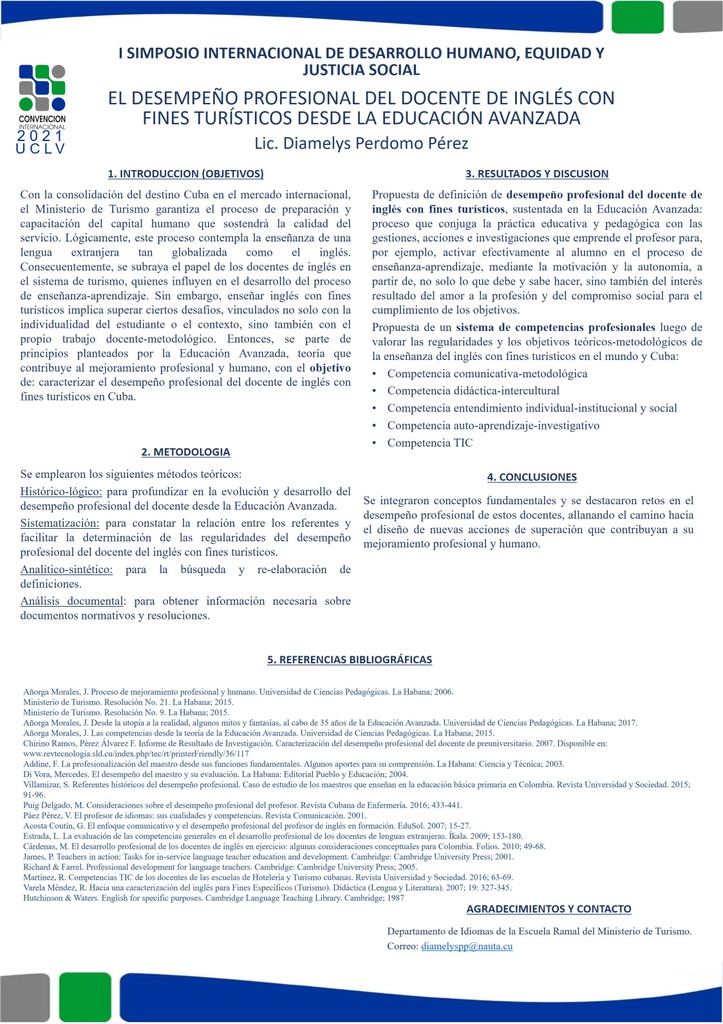Executive Secretary

Simposio Internacional “Desarrollo Humano, Equidad y Justicia Social"

Resumen:
Con la consolidación del destino Cuba en el mercado internacional, el Ministerio de Turismo garantiza el proceso de preparación y capacitación del capital humano que sostendrá la calidad del servicio. Lógicamente, este proceso contempla la enseñanza de una lengua extranjera tan globalizada como el inglés. Consecuentemente, se subraya el papel de los docentes de inglés en el sistema de turismo, quienes influyen en el desarrollo del proceso de enseñanza-aprendizaje. Sin embargo, enseñar inglés con fines turísticos implica superar ciertos desafíos, vinculados no solo con la individualidad del estudiante o el contexto, sino también con el propio trabajo docente-metodológico. Entonces, se parte de principios planteados por la Educación Avanzada -teoría que contribuye al mejoramiento profesional y humano- para caracterizar el desempeño profesional del docente de inglés con fines turísticos en Cuba. Se emplearon métodos teóricos como el histórico-lógico, la sistematización, el analítico-sintético y el análisis documental para orientar la investigación. Como resultado se propone una definición de desempeño profesional del docente de inglés con fines turísticos, así como un sistema de competencias profesionales luego de valorar las regularidades y los objetivos teóricos-metodológicos de este tipo de enseñanza en el mundo y Cuba. Se integraron conceptos fundamentales y se destacaron retos, allanando el camino hacia el diseño de nuevas acciones de superación que contribuyan al mejoramiento profesional y humano de estos profesores.
Abstract:
With the consolidation of the destination of Cuba in the international market, the Ministry of Tourism guarantees the process of preparation and training of the human capital that will sustain the quality of the service. Logically, this process contemplates the teaching of a foreign language as globalized as English. Consequently, the role of English teachers in the tourism system is underlined, since they influence the development of the teaching-learning process. However, teaching English for tourism purposes implies overcoming certain challenges, linked not only to the individuality of the student or the context, but also to the teaching-methodological work itself. Then, based on principles raised by Advanced Education -a theory that contributes to professional and human improvement- this paper’s objective is to characterize the professional performance of the teacher of English for tourism purposes in Cuba. Theoretical methods such as historical-logical, systematization, analytical-synthetic and documentary analysis were used to guide the research. As a result, a definition of professional performance of the teacher of English for tourism purposes is proposed, as well as a system of professional competences after assessing the regularities and the theoretical-methodological objectives of this type of teaching in the world and in Cuba. Fundamental concepts were integrated and challenges were highlighted, paving the way for the design of new actions that contribute to the professional and human improvement of these teachers.
Sobre el ponente

Diamelys Perdomo Pérez
